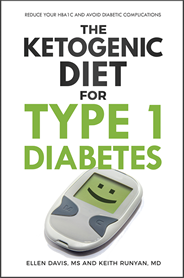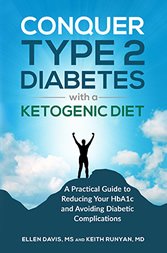Parkinsons Disease, ALS and Ketones
Updated September 16, 2020. Medical review by Albert J Hart, MD

Parkinsons Disease is a neurological disease characterized by nerve cell damage and cell death. The damage begins in a brain structure called the substantia nigra in which “dopaminergic” neurons are located, so called because they produce a neurotransmitter chemical called dopamine. Dopaminergic neurons have important functions in the brain, including control of voluntary movement and behaviors associated with mood, reward, addiction, and stress. When these particular neurons are damaged, less dopamine is made. Another marker of the disease is the development of Lewy bodies, abnormal tangles of proteins found in dying dopaminergic nerve cells.
Possible symptoms of Parkinson’s disease include motor disorders such as tremors, slowed movements, stiffness, slumped posture, and impaired coordination and balance. Non-motor symptoms such as a loss of the smell sense, an inability to sleep deeply, bladder and bowel issues, fatigue, confusion, memory loss and mood disorders such as depression may also manifest.
Research on the causes of Parkinson’s provides evidence that mitochondrial dysfunction, low antioxidant levels and dopamine oxidation create oxidative stress which inflames and damages dopaminergic cells. This leads to an overabundance of free radical activity in the form of reactive oxygen species (ROS).
Normally, our cells have antioxidants such as glutathione and superoxide dismutase (SOD) in place to suppress free radical activity which is so damaging to surrounding cells, but when ROS are generated in large amounts, either through mitochondrial respiratory dysfunction or other causes, they can overwhelm cell antioxidant defenses and cause oxidation damage to the polyunsaturated fatty acids in the cell membranes of dopaminergic neurons. This membrane damage results in neuron dysfunction and the symptoms of Parkinsons.
Several investigators have demonstrated that the ketogenic diet can relieve some of the symptoms of Parkinsons because it helps the cell bypass the dysfunctional mitochondrial processes and repair mitochondrial respiratory damage, thereby reducing the amount of free radicals and ROS created.
A small feasibility study by VanItallie demonstrated that 5 out of 7 patients put on a ketogenic diet showed improved scores on a standard Parkinsons rating test. Although the study was small, the positive outcome will hopefully generate funding for a larger study.
Another study done in an animal model of Parkinsons showed that a ketone body called D-betahydroxybutyrate was able to block the damage done by a toxin added to a culture of neurons. The toxin should have damaged cellular mitochondrial function but the ketones kept that from happening.
Other studies here, here and here have also shown that ketone bodies can protect neurons from the effects of oxidative stress.
The area of research on using ketogenic diets to treat Parkinson's disease is still in its infancy, but I have no doubt it will prove to be promising and useful for Parkinsons patients in the future.
Interview with Bill Curtis
This is an excellent interview with William Curtis. I met Mr. Curtis at the Tripping Over the Truth conference in November 2017. Mr. Curtis was diagnosed with Parkinson's in 2010 and has been keeping his symptoms in check using what he calls "intermittent ketosis" and exogenous ketones. He also has a website. The video is well worth watching if you have or care for someone with Parkinson's.
The Deanna Protocol for ALS (and possibly Parkinsons Disease)
Most neurologists agree on three general facts about ALS and neurodegenerative diseases such as Parkinsons disease:
- Cells lack energy
- Cells die
- Glutamate, an excitatory neurotransmitter, accumulates.
The Deanna Protocol was developed by a determined physician, Dr. Vincent Tedone whose daughter Deanna was diagnosed with ALS. He teamed up with Dr. Dominic D'Agostino and other researchers and they developed a protocol to address the third factor of excess glutamate accumulation.
Their work focused on the actions of two normal enzymes necessary to breakdown glutamate:
- GDH (Glutamic Acid Dehydrogenase) which breaks down glutamate to Alpha Keto Glutaric Acid (AKG) a ketone molecule
- GAD (Glutamic Acid Decarboxylase) which breaks down glutamate into Gamma Amino Butyric Acid (GABA) an inhibitory neurotransmitter.
AKG is an important substrate for the TCA/Krebs cycle which drives cellular energy processes. A lack of AKG stops the Krebs cycle and the affected cell dies. Low levels of GABA contribute to muscle spasticity and stiffness. Mainstream medicine teaches that GABA can't cross the blood brain barrier (BBB) so it's of no use to supplement with it. However, in ALS the BBB isn't working so well, and when given GABA, Deanna's symptoms improved. Providing AKG as a supplement added to that improvement.
Eventually, the team developed a protocol for treating Deanna which resulted in a marked improvement in her symptoms. It included supplementation with
- AAKG (Arginine Alpha-ketoglutarate)
- GABA (Gamma-aminobutyric acid )
- CoEQ10 ( Ubiquinol)
- Caprylic acid (MCT oil)
You can learn more at Dr. Tedone's site Winning the Fight. (https://www.winningthefight.org/)
The bottom line here is that even though the protocol was developed to treat ALS, this combination of supplements can be used to treat ANY neurological disease since they all exhibit lack of energy substrates and glutamate buildup.
More Information for Parkinson's Patients
Review articles:
- Treatment of Parkinson's Disease with Ketogenic diet - feasibility study by Vanitallie, et al.
- Ketogenic diet in neuromuscular and neurodegenerative diseases
- The ketogenic diet as a treatment paradigm for diverse neurological disorders
- Ketone body therapy: from the ketogenic diet to the oral administration of ketone ester
These helpful community resources have been recommended to me by my friend Adrian:
- Neurotalk at Psych Central: http://neurotalk.psychcentral.com/forum16.html
- Parkinsons.org: http://www.parkinsons.org.uk/
- PD Junction: http://pd-junction.socialgo.com/
- Parkinsons Movement on Health Unlocked: https://healthunlocked.com/!/#parkinsonsmovement
Book Resources
These books on living with Parkinsons Disease are also recommended:
- The Parkinson's Disease Treatment Book: Partnering with Your Doctor to Get the Most from Your Medications
- Natural Therapies for Parkinson's Disease
- Reverse Parkinson's Disease
All of my books are available in electronic PDF, and now in paperback on Amazon!
 |
 |
 |
|
Buy paperbook on Buy paperback on Amazon Buy the e-Book via Paypal |
Buy paperback on Buy paperback on Amazon Buy the e-Book via Paypal |
Buy paperback on Buy paperback on Amazon Buy the e-Book via PayPal |